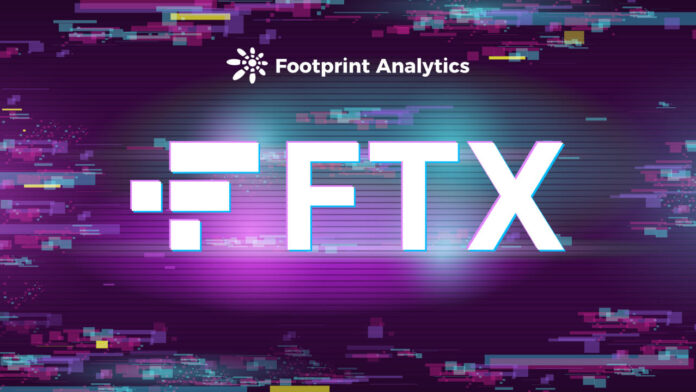
The FTX collapse impacted the whole crypto ecosystem, but this might have been deeply felt in Web3 gaming because of the ties between Solana and FTX.
Some believe the collapse will bring more attention to decentralized projects, while others think GameFi relies on centralization to attract Web2 gamers.
On Nov. 24, Tegro Earn hosted a Twitter Space featuring Footprint Analytics, Tegro Earn, KCC Games Guild, and Earn Alliance to talk about the impact of the FTX collapse on Web3 Gaming.
Here are the key takeaways.
What does this mean for the big picture?
- More investors and market participants are losing trust in centralized entities within crypto. The fall of a seemingly stable and prolific exchange, with strong ties to the GameFi ecosystem and key blockchains and marketplaces, had made people rethink how they store and stake their tokens.
- In the coming months, Web3 projects will lose funding opportunities, but this will change eventually because there are still funding houses with capital available to be deployed.
Siddharth Menon, the founder of Tegro, said:
“There’s a setback; there’s an entire trust issue. It comes back to why in the first place, Bitcoin was born. We don’t trust centralized entities. It’s not like people have lost faith in crypto in general.”
Earn Alliance noted:
“A lot of projects will lose the chance of funding, especially small games that got the funding through Web3. On one side, we’re going to see a lot of scams disappearing, but we’re losing a lot of great potential.”
Will this cause a rise in decentralized projects?
- Bitcoin, and the crypto industry in general, began as a way to decentralize the financial system and later extended to gaming and other industries. However, many centralized companies thrive in the ecosystem for the ease of use they provide.
- While centralized entities are better at attracting and maintaining mainstream users to crypto, they are inherently riskier than decentralized options.
Alex Cooper, Community Manager at Footprint Analytics, noted:
“Since everybody is taking their money off of centralized exchanges and now centralized exchanges can’t be trusted, are people going to start storing and staking their tokens on DeFi projects? Are we going to see another wave of DeFi protocols, especially for gaming?”
Juan Jose Martinez, Community Manager at Earn Alliance, said:
“Most games are trying to get players from Web2, and the easiest way to do that is just giving them easy access, and the way to do that is centralizing. In one side, games will become centralized, and on another we’re going to see a rise of decentralized games, but for people who are already in the ecosystem.”
How did this affect the existing GameFi protocols?
- Despite the bear market, GameFi protocols have been relatively stable for the last few months. However, the collapse of FTX and its effect on Solana and the wider crypto market will most likely cause a downsizing of players and investors.
- The price of NFTs and tokens also dropped, reducing the expected income for players.
Alex Cooper of Footprint Analytics noted:
“Based on our October GameFi report, not much changed since September going to October. The amount of funding is about the same, and the number of daily users are the same. But I think the FTX issue is going to drastically change our stats for the November report, especially for funding.”
Kyle from KCC Games Guild said:
“There are 20 to 25 projects that actually got funded either by Alameda Research or by FTX Ventures. With this kind of backup, you really have the chance to get listed on FTX. With the collapse of FTX they lose this advantage as well, so they have to seek funding from elsewhere.”
This piece is contributed by Footprint Analytics community in Nov. 2022 by [email protected]
Footprint Analytics is building blockchain’s most comprehensive data analysis infrastructure with tools to help developers, analysts, and investors get unrivaled GameFi, DeFi, and NFT insights.
The engine indexes, cleans and abstracts data from 20+ chains and counting—letting users build charts and dashboards without code using a drag-and-drop interface as well as with SQL or Python.
Footprint Analytics also provides a unified data API for NFTs, GameFi, and DeFi across all major chain ecosystems.
Credit: Source link






















 Bitcoin
Bitcoin  Ethereum
Ethereum  XRP
XRP  Tether
Tether  Solana
Solana  USDC
USDC  Dogecoin
Dogecoin  Cardano
Cardano  Lido Staked Ether
Lido Staked Ether  TRON
TRON  Wrapped Bitcoin
Wrapped Bitcoin  Wrapped stETH
Wrapped stETH  Chainlink
Chainlink  Avalanche
Avalanche  Sui
Sui  Stellar
Stellar  Litecoin
Litecoin  Toncoin
Toncoin  Shiba Inu
Shiba Inu  Hedera
Hedera  LEO Token
LEO Token  USDS
USDS  Hyperliquid
Hyperliquid  Polkadot
Polkadot  WETH
WETH  MANTRA
MANTRA  Bitcoin Cash
Bitcoin Cash  Ethena USDe
Ethena USDe  Bitget Token
Bitget Token  Wrapped eETH
Wrapped eETH  Uniswap
Uniswap  Monero
Monero  NEAR Protocol
NEAR Protocol  Pepe
Pepe  WhiteBIT Coin
WhiteBIT Coin  Aave
Aave  Bittensor
Bittensor  Ondo
Ondo  Aptos
Aptos  Internet Computer
Internet Computer  Dai
Dai  Official Trump
Official Trump  Ethereum Classic
Ethereum Classic  Mantle
Mantle  Tokenize Xchange
Tokenize Xchange  OKB
OKB  Gate
Gate  sUSDS
sUSDS  Coinbase Wrapped BTC
Coinbase Wrapped BTC 
